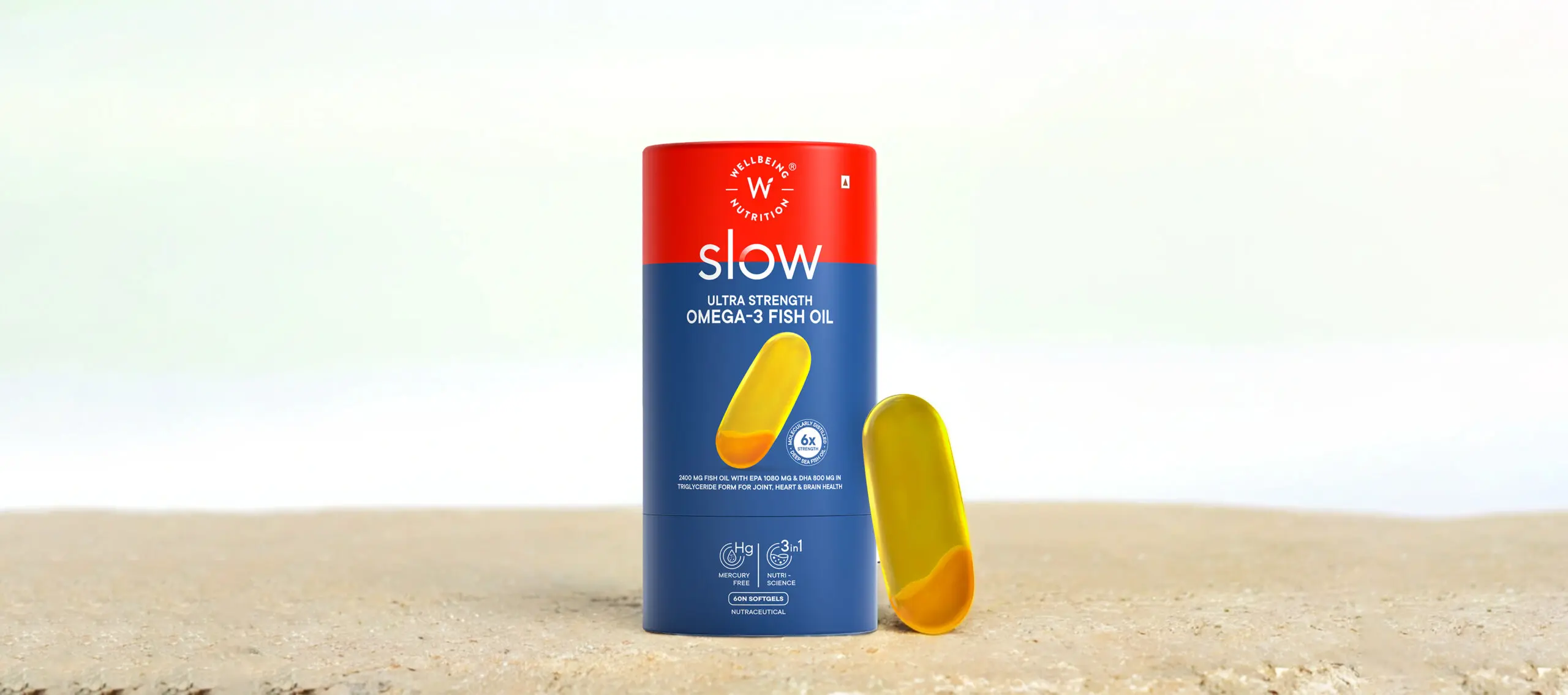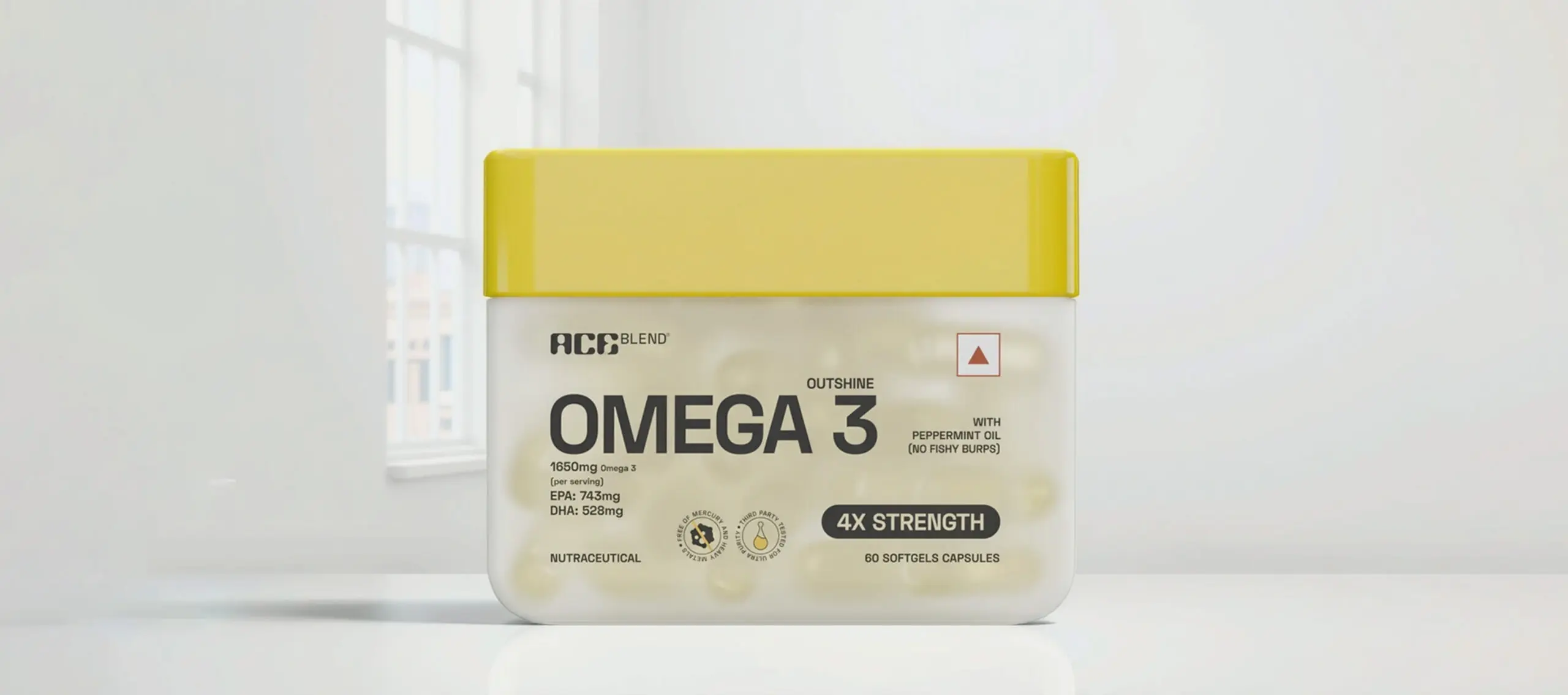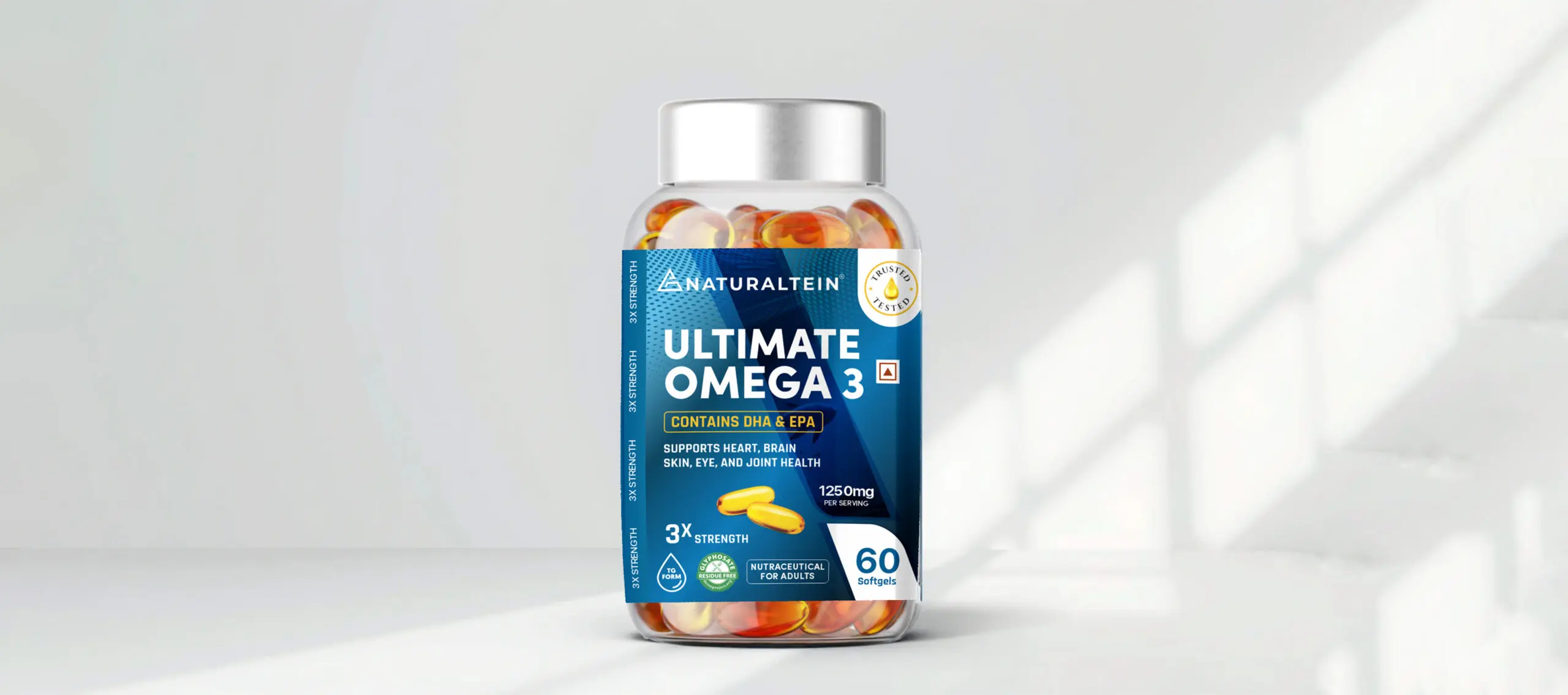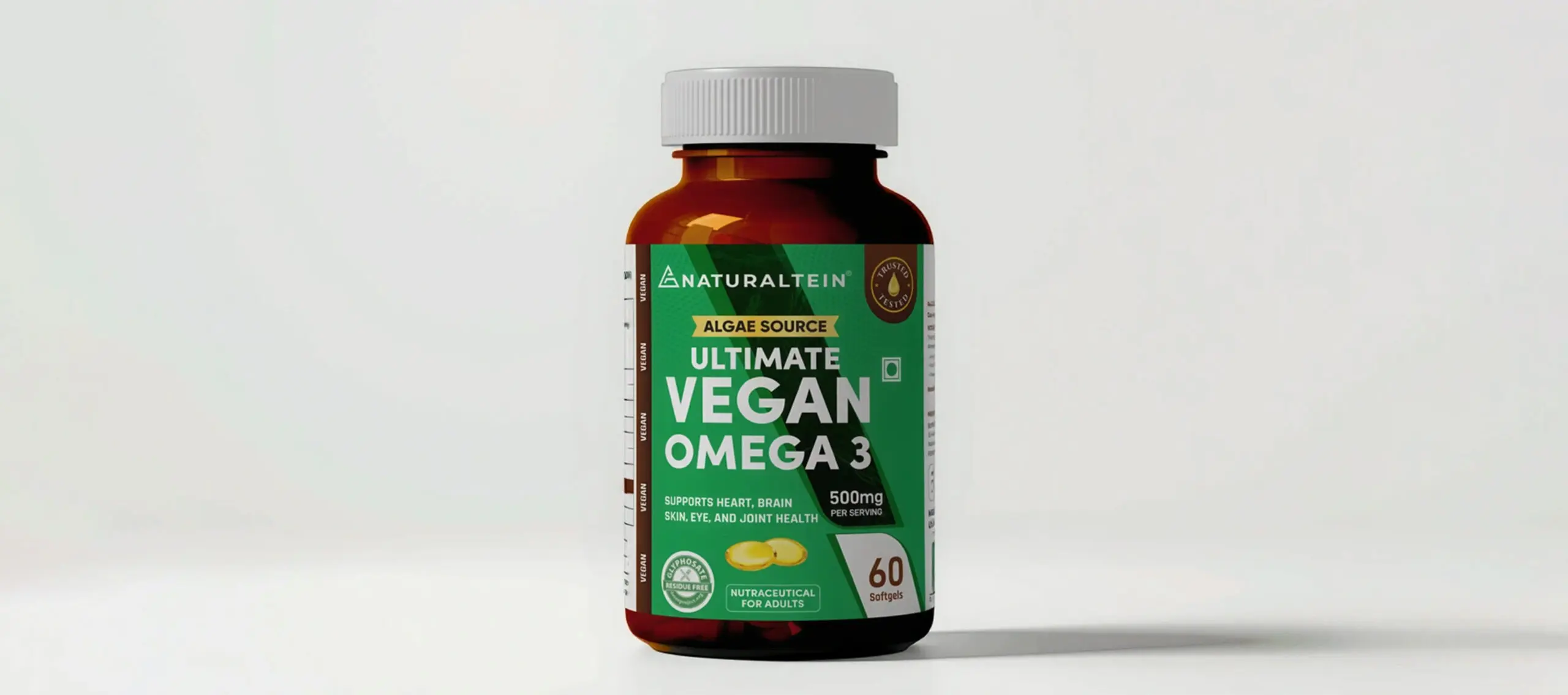Are Omega-3 Supplements Worth It? Here’s What You Need to Know
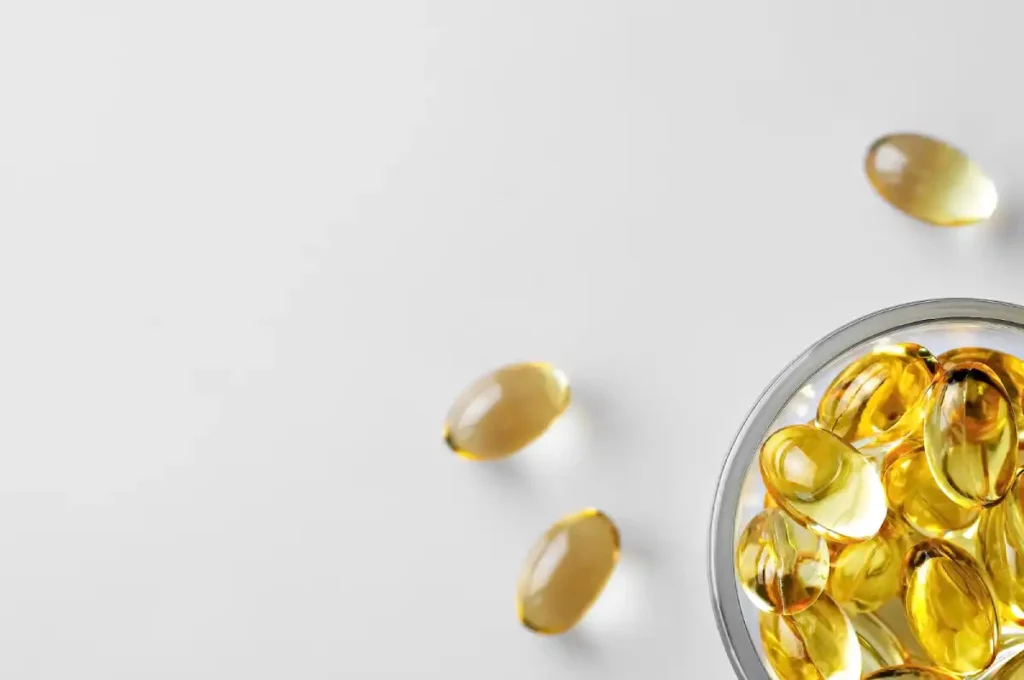
Omega-3 fatty acids are like a superpower for your body! These essential nutrients play a vital role in maintaining your heart health, promoting brain development and cognitive function, and helping to manage inflammation. The catch? Our bodies can’t produce them on their own, so we need to be intentional about getting enough through our diet or supplements.
Natural Food Sources
- – When it comes to omega-3s, the best sources are found in fatty fish. Think salmon, sardines, mackerel, and anchovies; these little guys are packed with EPA (eicosapentaenoic acid) and DHA (docosahexaenoic acid), the two most beneficial forms of omega-3s.
- – If you prefer plant-based options, flaxseeds, chia seeds, hemp seeds, and walnuts offer ALA (alpha-linolenic acid), which your body can convert into EPA and DHA, albeit a bit less efficiently.
📖 A 2024 StatPearls review highlights that while plant-based omega-3s are helpful, marine sources remain the most efficient way to boost EPA and DHA levels in the body 1
Eating fatty fish a few times a week can help you meet your omega-3 needs. However, fresh seafood faces rising contamination from heavy metals like mercury and lead due to pollution, a growing problem that will affect seafood globally. Let’s dive into that!
The Heavy Metal Factor

Certain predatory fish, such as tuna and swordfish, often have higher mercury levels, which can be a health concern. We know that mercury can negatively affect both neurological and cardiovascular health. And lead exposure isn’t something to take lightly, either!
🧪 A Romanian Medical Journal study found that heavy metals combined with omega-3 deficiency and a high omega-6:omega-3 ratio are linked to symptoms ranging from fatigue to cognitive decline 2
While it’s wise to vary your seafood choices to lower the risk, it doesn’t eliminate it. This is where high-quality omega-3 supplements come into play.
These supplements undergo thorough purification and testing to ensure they’re free from heavy metals and microplastics, allowing you to reap the benefits of omega-3s without the worry.
Food vs. Supplements
When it comes to nutrition, whole foods like fatty fish are powerhouses. They don’t just deliver omega-3 fatty acids; they also pack in a variety of other vital nutrients like vitamin D, selenium, and high-quality protein. This is one of the key advantages of getting your nutrients from food instead of supplements.
But supplements have their strengths too. They make it really convenient to maintain a consistent intake of omega-3s without the concerns about heavy metals or contamination that sometimes come with eating seafood.
For those following a vegetarian or vegan lifestyle, algal-based supplements can be a game changer. They provide DHA and EPA directly, which eliminates the less efficient process of converting ALA found in seeds and nuts. This way, you can ensure you’re getting the essential fats you need without compromising your dietary choices.
📖 Research shows that algal-derived omega-3 oils can be a sustainable and effective alternative, especially for those avoiding seafood 3
Processing & Supplement Quality

Not all omega-3 supplements are created equal! You’ll often find that lower-cost options are processed into a form known as ethyl ester, which your body absorbs less effectively. To counter this, manufacturers frequently use coatings to mask aftertastes, often a sign of lower quality.
If you want to maximise your health investment, look for premium omega supplements that deliver oils in triglyceride form, the same type found in natural foods. This ensures superior absorption and effectiveness.
Pink Tiger Verified
Seek out independent third-party verifications, such as those from Pink Tiger, which screen for heavy metals, contaminants, and label accuracy; so you can trust what’s inside matches what’s promised.
Why Supplements Deserve a Spot in Your Routine?
Let’s be real: supplements aren’t about trading in fresh foods for convenience; they’re about fortifying your diet to meet your health needs, especially when busy lives and environmental concerns come into play. If winding down with a fish dinner isn’t your thing, or if you’re looking for peace of mind regarding contamination, a quality omega-3 supplement can be a fantastic addition to your routine.
The takeaway? So, savour that fish curry and sprinkle some seeds on your smoothie when you can. If you’re concerned that your diet might be lacking, it might be worth consulting with your healthcare provider about whether a high-quality omega-3 supplement could benefit you. Remember, supplements aren’t a magic solution; think of them as a helpful backup when it’s tough to get enough nutrients from food alone or if your doctor advises it. Ultimately, the goal is clear: to safeguard your long-term health and help you feel your very best every day. Enjoy the journey to better health!
Follow us on Instagram @pinktiger_by_luke_coutinho for more wellness insights, tips, and daily inspiration.
Disclaimer : This content is for informational purposes only and is not a substitute for professional medical advice, diagnosis, or treatment. Always consult a qualified healthcare provider for any questions or concerns regarding your health.
References:
- 1. Krupa, K. N., Fritz, K., & Parmar, M. (2024, February 28). Omega-3 fatty acids. StatPearls – NCBI Bookshelf. https://www.ncbi.nlm.nih.gov/books/NBK564314/
- 2. Epure, Alina & Anastasoi, Veronica & Cheta, Dan. (2022). Correlation between the presence of metals with intoxication potential, omega 3 deficiency, increased omega 6:omega 3 ratio and their associated symptoms. Romanian Medical Journal. 69.72-79. 10.37897/RMJ.2022.2.5.
- 3. Matilde Rodrigues, Ana Rosa, André Almeida, Rui Martins, T.ânia Ribeiro, Manuela Pintado, Raquel F.S. Gonçalves, Ana C. Pinheiro, António J.M. Fonseca, Margarida R.G. Maia, Ana R.J. Cabrita, Lillian Barros, Cristina Caleja, Omega-3 fatty acids from fish by-products: Innovative extraction and application in food and feed, Food and Bioproducts Processing, Volume 145, 2024, Pages 32-41, ISSN 0960-3085, https://doi.org/10.1016/j.fbp.2024.02.007.
- 4. Briones, Dave & Lazaro-Llanos, Nancy. (2015). Omega-3 Fatty Acids versus Heavy Metals: A Quantitative Estimation of the Benefit-Risk Ratio for the Consumption of Commonly-Consumed Fish and Products in Metro Manila. KIMIKA. 26.40-51. 10.26534/kimika.v26i2.39-50.
